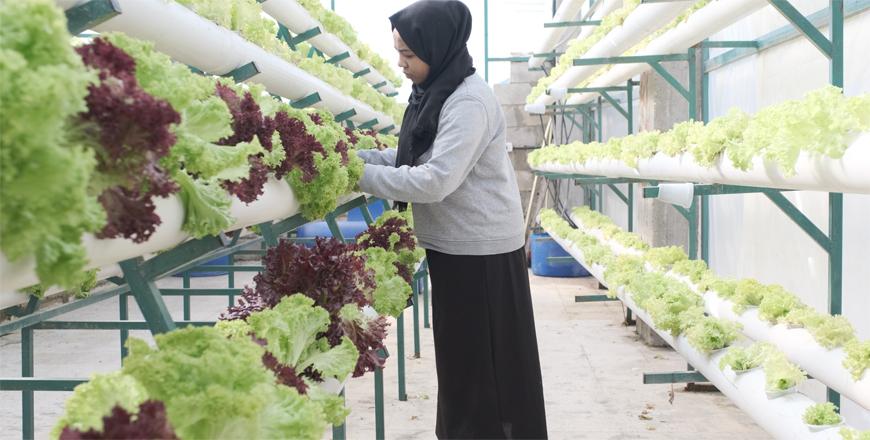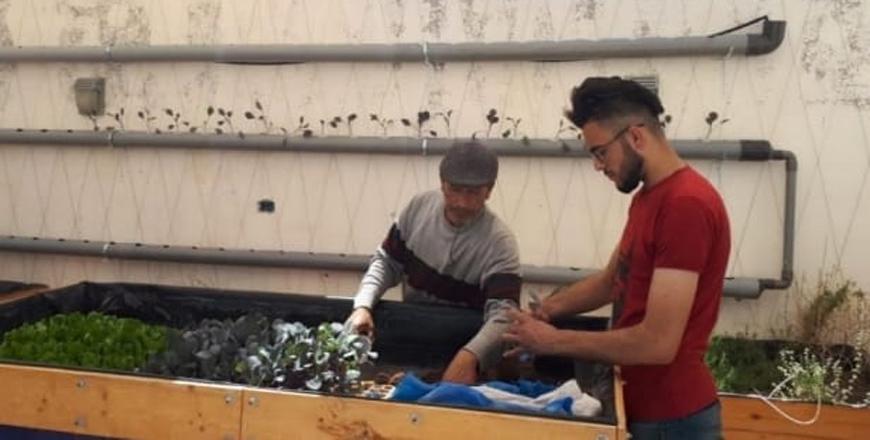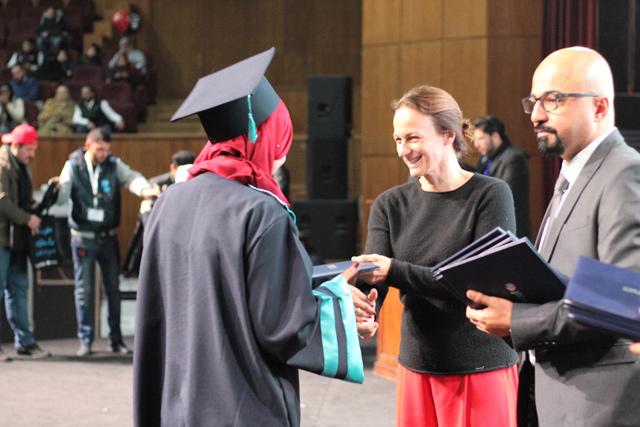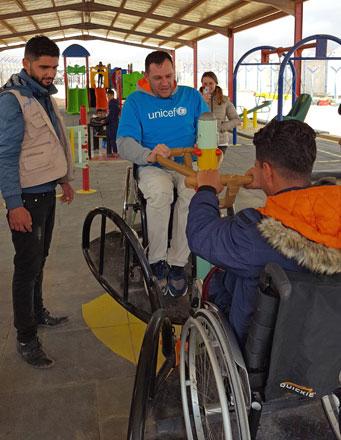You are here
UNICEF’s ‘green rooftops’ combat poverty, unemployment in Jerash camp
By Anna Rice - Feb 21,2022 - Last updated at Feb 21,2022

A beneficiary of the UNICEF-supported Sennara green rooftops project is seen tending to crops in Jerash camp in this image grab from a video (Photo by Anna Rice)
AMMAN — Though the streets of Jerash camp illustrate its high poverty level, the rooftops above hide oases of hope and economic development.
The camp — locally known as Gaza camp — is home to an estimated 25,000 Palestinian refugees. According to UNHCR, it is the poorest of the 10 official Palestinian refugee camps in Jordan, with unofficial estimates of male unemployment standing at 39 per cent, rising to 81 per cent for women.
On many of the camps’ rooftops, hydroponic gardens can be found. Each one is owned and managed by two women or youth under the UNICEF-supported Sennara green rooftops project.
According to Mohammad Syam, a Palestinian refugee from the camp who created the initial concept, Sennara centres its aims around the saying: “If you give a man a fish, you feed him for a day. If you teach a man how to fish, you feed him for a year.”
Aligned with this concept of sustainability and self-sufficiency, the project creates sustainable employment opportunities for women and young people in Jerash camp, according to UNICEF Jordan Representative Tanya Chapuisat.
On the camp’s rooftops, beneficiaries learn to grow crops, which are then sold, with 75 per cent of profits going directly to the families involved, and 25 per cent directed towards sustaining the Sennara project itself.
“The project provides UNICEF-supported training and seed funding to help those involved to learn new skills, strengthen their food security, and become more self-sufficient while developing their own businesses,” Chapuisat told The Jordan Times.
For the camp’s population, finding sustainable employment is a difficult task due to strict restrictions defining the sectors in which they are allowed to work.
However, for women and young people, the difficulty of this challenge is heightened due to various economic and social factors, such as certain social restrictions placed on the work of women by the camp’s community, according to Syam.
The UNICEF-supported enterprise has so far trained and equipped 40 women and young people to run, sustain and manage these green rooftop gardens, which have also created an additional 30 income-generating opportunities for other people in the camp through the “ripple effect” of these enterprises.
Hanadi Abdel Qader Abu Amra, 21, and her sister, Hind, 23, live in Jerash camp. They have been supported by the project for nearly two years and now grow crops on the roof of their family home.
“We have learned how to grow these plants, how to plant them, and how to care for them when they are damaged,” Hanadi told The Jordan Times.
Their mother, Etidel Mohammad Abu Amra, expressed the family’s desire to be part of the Sennara project and, in turn, to benefit from the salary it helps them to earn.
According to Etidel, the project builds upon preexisting traditions of agriculture and gardening in their community. “We have worked in gardens since we were young,” she said.
She stressed not only their desire to use the project-generated income to carry out essential maintenance work on their home, but also to provide for Hind’s young daughter.
Since 2019, UNICEF’s self-employment programmes have supported the establishment of 217 enterprises and 99 women-led SMEs and home-based businesses, creating over 1,500 job opportunities.
Chapuisat said that, “building on the success of the project in Jerash camp”, UNICEF hopes to support more green rooftops and create income-generating opportunities for hundreds of young people and women living in vulnerable areas of Jordan over the coming two years.
Related Articles
AMMAN — An environmentally sustainable project titled “Green Rooftops”, implemented by UNICEF Jordan in Jerash Camp aims to stimulate the ec
AMMAN — Equipped with the necessary skills to transition from learning to meaningful employment, 700 youth have graduated from the UNICEF-su
AMMAN — UNICEF Andorra ambassador and world-renowned rally driver, Albert Llovera, has concluded a mission to Jordan to meet children benefi



















